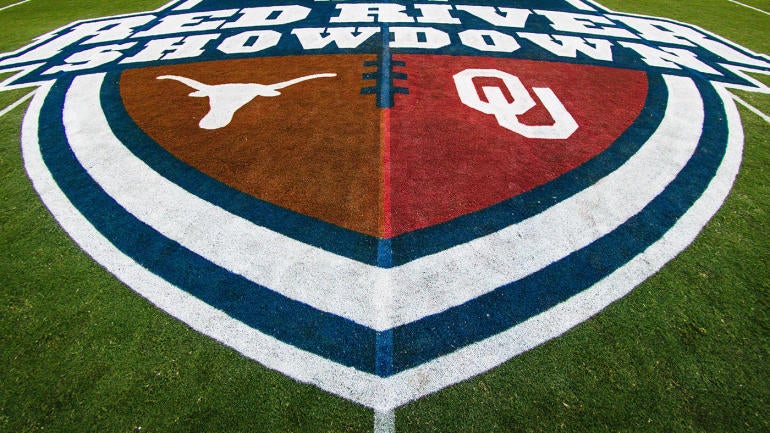
The Big 12 recently held a conference call updating stakeholders on the progress of College Football Playoff expansion. In the midst of the update, someone on the call asked how it would impact another round of conference realignment.
According to one source on the call, Oklahoma president Joseph Harroz Jr. reiterated his school's commitment to the Big 12. My how times have changed.
Texas and Oklahoma have reached out to the SEC about joining the league should the two Big 12 powerhouses choose to leave their home conference, the Houston Chronicle reported Wednesday. At least Texas has reached out to the SEC inquiring about admission into the nation's most powerful conference, sources tell CBS Sports.
Whether Texas was speaking for Oklahoma as well has not been determined.
University of Texas regents chair Kevin Eltife is behind the pitch, sources tell CBS Sports. Eltife is a 62-year-old commercial real estate investor in Tyler, Texas, who served in the Texas Senate from 2004-13. He was appointed as a regent to the UT system by Texas Gov. Greg Abbott in 2019.
Here we are again, 10 years after the Great Realignment of 2010, contemplating realignment again for the same old reasons. Make that one reason: money.
The generator is that aforementioned CFP expansion. The conferences with the most best teams win.
The SEC favors CFP expansion that would include the 12 best teams. If it turns out that way, the SEC could wind up with six of those 12 teams if it adds Texas and Oklahoma to the fold.
OK, maybe that's an exaggeration. Maybe not.
The SEC has to give this inquiry serious consideration. It could conceivably become the first superconference of the modern era -- 16 teams from Florida to Texas. Such a realignment would basically scuttle the Big 12 and force the ACC and Big Ten to expand just to keep up with the SEC.
With Texas and Oklahoma, the SEC could conceivably go from a $44 million per team annual payout to $60 million. There wouldn't be many difference-making programs left to admit. Notre Dame is an independent. USC is in the Pac-12, which already has its own slew of issues.
Whether it happens, this is what's next for major college athletics. Adapt or die.
Who says the SEC stops at 16? Maybe it goes to 32, the same number of teams that populate the NFL, and just creates a separate league.
The SEC would need 11 of 14 schools to vote in the affirmative to admit Texas and Oklahoma. Texas A&M would be a certain vote against expansion. Missouri and Alabama could be among the dissenters for competitive reasons. As with Texas A&M, Florida, Georgia and South Carolina may have concerns about future realignment loosening SEC footholds within their states.
The Big 12 has a grant of rights agreement that would serve as an impediment to this happening immediately. That agreement states, if any team leaves the conference before the TV deal expires in 2025, the conference would own that team's television rights.
Texas and Oklahoma could leave, break that agreement and simply say, "Sue us."
There are questions about how the Longhorn Network would fit in. Oklahoma has a third-tier agreement with Bally Sports, too. But the SEC and its two potential new partners are so big and so rich that those seem to be just details.
At worst, even if SEC expansion is not immediate, Wednesday's developments will be lingering over both conferences until the Big 12 contract expires in 2025.
"There is way too much smoke at this point," one Big 12 source tells CBS Sports.
Texas has long considered itself too aristocratic for the pedestrian SEC. If it left the Big 12, the ACC or Big Ten were considered more likely destinations. Oklahoma was the more likely choice and better fit for the SEC.
Either way, the schools' brands would be diluted. OU and UT rule the Big 12. In the SEC, Oklahoma and Texas would be perhaps the fourth-, fifth- or even sixth-best programs.
Making $60 million a year would soothe those egos. In a way, none of this should be surprising. The Pac-12 came within 30 minutes of the raiding the Big 12 in 2010.
The SEC is bigger and far better than the Pac-12. It's not likely to turn down this epic request whether it's in the next two weeks or two years from now.
















